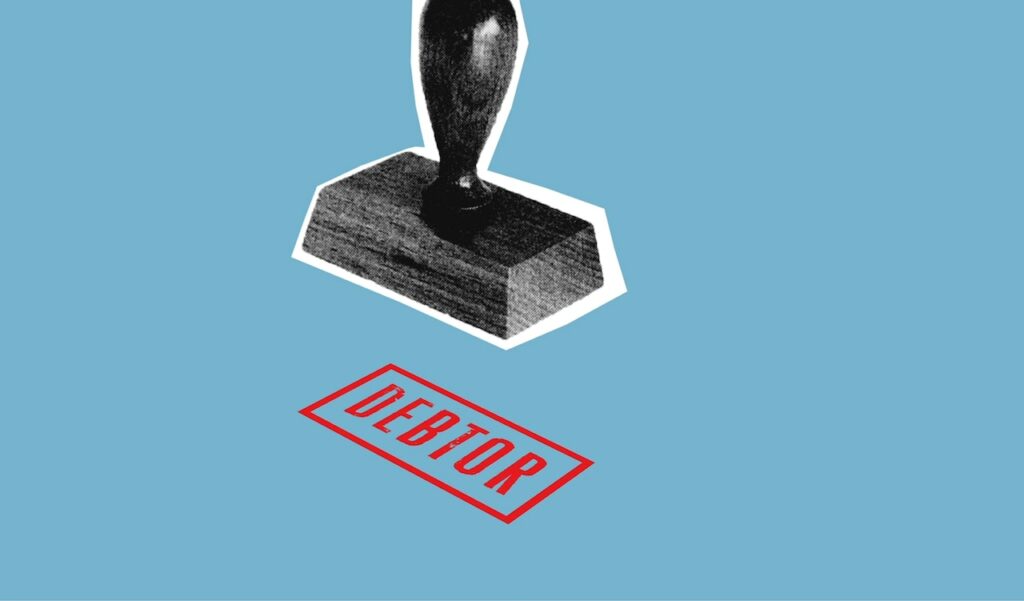

Since 2010, the Global Law Experts annual awards have been celebrating excellence, innovation and performance across the legal communities from around the world.
posted 10 months ago
If a company becomes insolvent, it is crucial that its directors comply with their legal duties. Failure to do so can result in personal liability for the company’s debts as well as legal action and disqualification from being a company director or being involved in a company in the future.
We look at exactly what a director’s duties on company insolvency are and some of the risks to be aware of in dealing with an insolvency.

Under s123 Insolvency Act 1986 (the Act), a company is deemed insolvent when it is unable to pay its debts as and when they fall due and criteria includes:
The balance sheet test is often used if a company is ceasing to trade and unlikely to receive further income.
If a company is still trading and more income is expected, the cash flow test can be used.
As a director, it is important to understand when your company may be insolvent, as your duties at this point will change. It is not always simple to know whether a business is insolvent and if you have any doubts, you are advised to speak to an insolvency expert. Taking the right actions is essential if you are to avoid being penalised.
Walking away from an insolvent company is not an option. You need to follow the correct process as the business is ended so that those with a stake in the company are treated fairly and the available assets are used to settle debts as far as possible.
When a company is insolvent, the directors duties are focussed on the interests of creditors as opposed to the company’s shareholders.
If as a director you become aware that your company is insolvent, you are required to take a number of steps and observe the insolvency rules to protect the company and its assets for the benefit of the company’s creditors. This may include but is not limited to the following:
You need to cease trading once your company becomes insolvent. It is sometimes difficult to establish exactly when that is and at what point a director’s duty to the company’s shareholders changes to a duty to minimise creditor losses.
It is likely that your conduct as a director during this period will be closely examined during an insolvency, so it is crucial to take the right action. You are strongly advised to speak to an expert insolvency solicitor if you are uncertain as to the correct steps. Taking legal advice will help to demonstrate that you did all you could to act in the right way.
The company’s assets will be sold to pay creditors during the liquidation and/or administration process. As a director, you need to take steps to preserve the assets in the meantime. This includes securing property, machinery, and stock as well as collecting debts that are owed to the business.
If you have taken the decision to end trading, you may consider holding a shareholders’ meeting and have a vote to wind up the company on a voluntary basis. If 75% of shareholders agree, then a special resolution is passed and this needs to be filed at Companies House.
Depending on the circumstances, the company may also decide to enter administration and for more information, please see our blog: Entering into Administration.
When the shareholders have agreed to the cessation of the business, it is time to appoint a licensed insolvency practitioner. It is open to you to approach one earlier in the process if you wish, and they will be able to give you some guidance as to the steps to be taken.
Once an insolvency practitioner has been appointed, they will step in to take over control of the business. The insolvency practitioner will seek to realise the company’s assets and arrange for the proceeds to be distributed to the creditors in accordance with the rules and in order of ranking.
The directors and the liquidator will need to put together a report and statement of affairs for the creditors. This needs to include details such as the current financial situation as well as previous history and business information in respect of the trading carried out by the company. The report should also include information about anything out of the ordinary that the company has been involved in.
You will also be required to cooperate with the insolvency practitioner as needed. This includes answering questions, providing information, and attending meetings. There is also a duty to notify all interested parties, such as creditors, shareholders, employees, and regulatory authorities.
If you have an overdrawn director’s account, you will be required to repay this. If you are not able to, it cannot be written off and you should take legal advice on the way to deal with the situation. For more information, see our blog on The treatment of director’s loan accounts in administration or liquidation.
Upon insolvency, directors have a duty to act in the best interests of creditors. We take an in-depth look at this below.
Misfeasance applies if a director has misapplied or retained, or become accountable for any property (including money) of the company, or been guilty of any misfeasance or breach of any fiduciary or other duty in relation to the company. If a court considers that a director is guilty of misfeasance, the director could be personally liable for any losses that the company or the creditors have suffered as a result.
Wrongful trading occurs when the directors of a company carry on trading after they knew or ought to have known there was no reasonable prospect of avoiding insolvent liquidation or administration. Directors can be held personally liable for any losses sustained by the company because of wrongful trading.
Fraudulent trading is when directors use any business of the company to be carried out with the intention to defraud creditors This is a criminal offence and can result in a prison sentence as a civil offence.
A company director guilty of misfeasance, wrongful trading and/or fraudulent trading may also be subject to director’s disqualification proceedings. For more information, please see our blog on Director disqualification: what do I need to know?.
It is not always straightforward to assess when insolvency is occurring and when a director’s duty switches from the best interests of the company to the best interests of the creditors. Two recent cases have examined the situation.
BTI 2014 LLC v Sequana Sam [2022] UKSC 25
Background
The case involved the payment of a dividend in the sum of €135 million by Arjo Wiggins Appleton Ltd (AWA) to its sole shareholder, Sequana SA. The dividend was paid as a set-off against a debt owed by Sequana to AWA.
Although AWA was not insolvent at the time the dividend was paid, it had contingent liabilities in respect of historical pollution. Insurance was in place, but it was not certain that the payouts would be sufficient to cover the liabilities in full. This meant that there was a real risk that AWA could become insolvent.
A claim was made against AWA’s directors when AWA subsequently entered into administration. It was claimed by BTI, the assignee of the AWA claim, that the directors had breached their duty to prioritise AWA’s creditors when making the dividend payment.
Court findings
The court looked at the ‘creditor duty’ of directors, in particular during the difficult period when a company may be approaching insolvency.
It was reiterated that while directors have a duty to act in good faith in the interests of the company and its shareholders, they must also take into account creditors’ interests.
It agreed unanimously however that a duty to creditors is not triggered simply by a real risk of insolvency. This meant that the directors were not duty-bound to prioritise the creditors’ interests when they made the dividend payment as AWA was not insolvent at this point, and insolvency was neither imminent nor probable.
Some guidance was provided on when directors need to consider the creditor interest. If a director knows or ought to know that a company is insolvent or bordering on insolvency or that insolvency is probable, the duty to consider creditor interests will arise.
The directors’ duty to the creditors needs to be appropriate to the circumstances that the company finds itself in. Other stakeholders’ interests can be taken into account, but at the point where insolvency becomes inevitable, the interests of the creditors will be paramount.
For this reason, it is important to understand the financial situation of a company if it is in any difficulties or if difficulties are on the horizon. If you are not certain as to the level of risk your business is facing, you should take expert advice to ensure you have done all you can to accurately assess the situation.
Hunt v Singh [2023] EWHC 1784
Background
The circumstances of when the duties to creditors arise were again looked at in the High Court case of Hunt v Singh. Marylebone Warwick Balfour Management Ltd (the company) was a member of a corporate group engaged in the winding down of its business.
The company had used a tax avoidance scheme during this time that allowed it to pay bonuses of over £54 million to senior management without paying NIC or PAYE contributions to HMRC. The company had been advised by professionals that the scheme was robust. However, HMRC made increasing enquiries into the scheme and other similar schemes, culminating in an offer to those involved in schemes of this type to settle their liabilities.
The company declined to settle. A Court of Appeal case subsequently found that NIC and PAYE contributions were payable on this type of scheme. The company stopped using the scheme in 2010. In 2013, it entered liquidation.
HMRC claimed in excess of £38 million from the company, and the liquidator, Mr Hunt, brought claims against the company directors for breaching their creditor duty. The claim was dismissed at first instance.
The liquidator appealed and the case between a single respondent, Mr Singh, and the liquidator, who claimed that a duty to creditors had arisen at the time HMRC had made an offer to those involved the schemes to settle.
Court findings
The court looked at both when a creditor duty arises and what the creditor duty requires.
It noted that in the previous case of Sequana, the liability had been contingent; in this case, the liability was disputed but not contingent. Having a disputed liability meant that the company was insolvent throughout the relevant period.
The court assumed that directors would need to have some knowledge of the insolvency for the creditor duty to arise. If there is a real prospect of a liability being enforced and the directors knew or should have known this, then a creditor duty arises. In this case, the creditor duty arose when HMRC made its offer to settle and continued until the company went into liquidation.
The judge, Zacaroli J, said:
“[A]ssuming some element of knowledge is required, where a company is faced with a claim to a current liability of such a size that its solvency is dependent on successfully challenging that claim, then the creditor duty arises if the directors know or ought to know that there is at least a real prospect of the challenge failing.”
In considering what actions the directors should take once a creditor duty arises, the court noted what was said by Lord Reed in Sequana. This suggests taking into account the particular circumstances and “… what it may be reasonable and responsible for directors to do when they find the company is in a sufficiently weak financial situation that a conflict of interest between its creditors and its shareholders appears to arise.”
If you are concerned that your company’s financial situation may place you in a difficult position as a director, you are advised to seek legal advice. It is essential to understand when a duty to prioritise creditors arises and to ensure that from that moment on, all decisions are carefully considered in light of this.
Failure to handle matters correctly at this crucial time has the potential to result in substantial personal losses, should a director be found liable.
Wrongful or insolvent trading: can directors be personally liable?
Received a winding-up petition? 9 things you need to consider
We are pleased to announce that we have won the Global Awards by ACQ5 award for Best Firm for Commercial Disputes London 2023. We were named as the ‘Commercial Disputes Specialists of the Year’ in the Corporate Livewire Innovation & Excellent Awards 2020 as well as ‘Boutique Litigation Law Firm of the Year’ in both the 2019 and 2020 Global Awards by ACQ5. Partner, Dipesh Dosani, was named Commercial Litigation Lawyer of the Year in 2019 and 2020 in the ACQ5 Law Awards.
If you would like to talk to one of our expert legal team about a contract dispute, call us on 020 3968 6030, email us at [email protected] or fill in our contact form and we’ll be happy to help.

The above information is for general guidance on your rights and responsibilities and is not legal advice. If you need more details on your rights or legal advice about what action to take, please contact a legal advisor.
posted 5 hours ago
posted 17 hours ago
posted 17 hours ago
posted 4 days ago
posted 4 days ago
posted 4 days ago
posted 5 days ago
There are no results matching your search.
ResetSign up for the latest advisory briefings and news within Global Advisory Experts’ community, as well as a whole host of features, editorial and conference updates direct to your email inbox.
Naturally you can unsubscribe at any time.
Global Advisory Experts is dedicated to providing exceptional advisory services to clients around the world. With a vast network of highly skilled and experienced advisers, we are committed to delivering innovative and tailored solutions to meet the diverse needs of our clients in various jurisdictions.